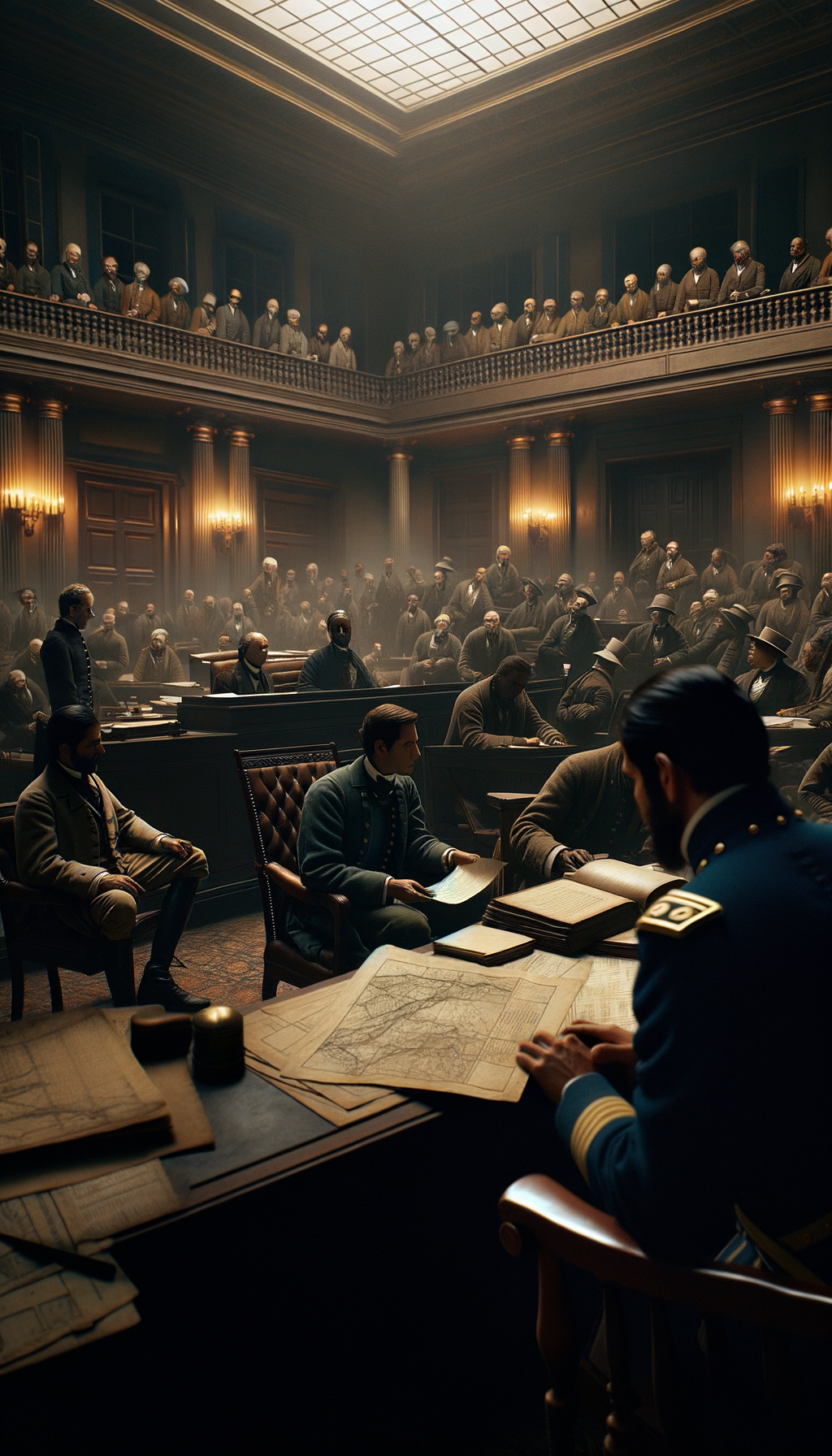United States – A Desperate Gamble: The Confederacy's Last Stand – March 10, 1865
TLDR;
- Event: On March 10, 1865, the Confederate Congress passed a bill to enlist black soldiers into their army, signed into law by President Jefferson Davis on March 13, 1865, as a desperate measure to counter their dwindling forces during the American Civil War.
- Context: By 1865, the Confederacy was facing imminent defeat with scarce resources and a shrinking army, prompting this radical and controversial decision.
- Impact: The decision had little practical effect on the war as very few black soldiers were enlisted and saw combat before the Confederacy’s surrender at Appomattox Court House on April 9, 1865.
- Significance: This move highlighted the desperation and ideological contradictions within the Confederacy, marking a last stand that could not alter the war’s outcome.
–
Story
The air in Richmond was thick with tension as the Confederate Congress convened on March 10, 1865. The war was slipping through their fingers, and desperation hung over the chamber like a storm cloud. In a move that would have been unthinkable just months before, the Confederacy was about to make a radical decision: to arm the very people they had fought to keep enslaved.

By 1865, the American Civil War had ravaged the South. The Confederate Army was dwindling, resources were scarce, and Union forces were closing in. The Confederacy faced a grim reality: without a drastic change, defeat was inevitable. In a last-ditch effort to bolster their ranks, the Confederate Congress passed a bill on March 10, 1865, allowing the enlistment of black soldiers, which was signed into law by President Jefferson Davis on March 13, 1865.
This decision was fraught with controversy. For years, the Confederacy had fought to preserve slavery, and now they were asking enslaved men to fight for their cause. The bill was a stark acknowledgment of their dire situation, a gamble that challenged the very foundations of the Confederate ideology.
While the decision marked a significant ideological shift, it did not have a substantial impact on the war’s progression. Very few black soldiers were actually enlisted, and even fewer saw combat before the end of the war. The Confederacy’s decision came just weeks before General Robert E. Lee’s surrender at Appomattox Court House, marking the end of the Civil War.
The enlistment of black soldiers in the Confederate Army remains a poignant symbol of the contradictions and complexities of the Civil War. It was a moment that underscored the desperation of a nation on the brink of collapse, a last stand that ultimately could not change the course of history.
–
| Would a different decision by the Confederate Congress have changed the outcome of the Civil War? |